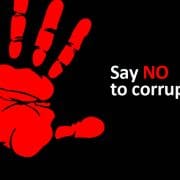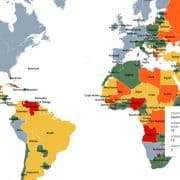|
Getting your Trinity Audio player ready...
|
By Kwazi Dlamini
Resident UN coordinator in South Africa Nardos Bekel-Thomas warned that when impunity becomes the culture and crimes of corruption are not addressed, it makes citizens lose confidence in democracies, and erodes the legitimacy of government.
She was speaking at the annual commemoration of International Anti-Corruption Day (IACD) hosted on the day, 9 December, by the Public Service Commission in partnership with the UN and the University of South Africa. The theme for 2020 is Recover with integrity.
Bekel-Thomas said corruption affects underdeveloped countries the most because it takes away the ability to provide food for the poor and medicine for the sick. Taking these basic services from fellow citizens, the most vulnerable, is an assault on the struggle to uplift people out of poverty, she stated, and it also undermines the rule of law.
Society must denounce corruption on all fronts to maintain public confidence, especially South Africa with its score of 44 on the most recent Corruption Perceptions Index. This mediocre score, said Bekel-Thomas, shows that the country has a long way to go. “Once confidence is eroded, we see service delivery protests, this in the long run has consequences, and it will affect the fiscus. It is important that investigations lead to prosecutions.”
She noted the International Anti-Corruption Day as a day to urge governments, politicians, businesses, civil society and communities to join forces against the scourge of corruption.
Public service and administration minister Senzo Mchunu echoed the words of Bekel-Thomas. Corruption is a sin, he said in his keynote address, and a criminal offence that must be prevented at all cost. Mchunu stressed the importance of having preventative measures in place because, as this year’s theme says, the corrupt individuals have lost their integrity, which results in people living in poverty.
He admitted that corruption not only paints the government in a bad light, but it also dents all hopes for a prosperous South Africa. For this reason, he insisted, fighting corruption remains the government’s first priority but the public must get involved in confront and exposing corruption. Corruption fighting agencies, he said, should fear nothing in pursuing those involved in corruption because these agencies have the full backing of the government.
“It is the integrity that we have lost that is putting us at the bottom. A few are benefiting from the resources of the state at the expense of those in need.”
Mchunu emphasised that 9 December is the day for individuals in South Africa to recommit themselves to fight corruption – not because the UN or the government calls for it but because the fight is one that can only be won through a united effort.
The country committed itself to laws and policies aligned to international standards, he said, and the plan is to elevate efforts to maintain those standards. He called for the government to garner all resources at its disposal to stop those who continue to loot state resources unabated.








